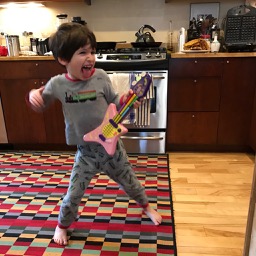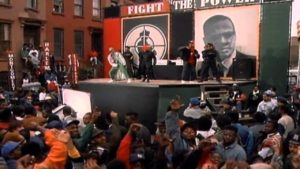This is a revised version of my original post. No major changes. Just shortened the first part, to move more quickly to the second one.
First, making a business trip to UTEP, the University of Texas at El Paso, together with my wife. Who was also invited there. As blog readers know, she’s Anne Midgette, classical music critic at the Washington Post.
I’ve been asked in the past to come along when she’s been invited somewhere, and people often hope she’ll come when I’m the one invited.
Two problems with that — we’re both busy with our own professional work. And we have our five year-old, Rafa, who’d have no one to care for him. So he has to come along.
 And finally the stars aligned to make it possible. Both Anne and I were formally invited, and our hosts arranged childcare, so Rafa would have something to do. Wonderful childcare, so he had fun just as Anne and I did. (Many thanks to Steve Wilson, interim head of the music department, who invited us, and on top of other good things made the childcare possible!)
And finally the stars aligned to make it possible. Both Anne and I were formally invited, and our hosts arranged childcare, so Rafa would have something to do. Wonderful childcare, so he had fun just as Anne and I did. (Many thanks to Steve Wilson, interim head of the music department, who invited us, and on top of other good things made the childcare possible!)
We’re open to other invitations!
And then my talk
On the university’s Centennial Lecture series.
So, well, I got a standing ovation, which I don’t think has happened before. Talks I’ve given have been well received, but not like this.
There’s no recording, but I’m writing out what I said, and will share it here. Of course I talked about the future of classical music, with a focus on how we all — all of us in the classical music field — need to change.
Often I’ve said (those of you who’ve read me for a while have seen this) that classical music hasn’t kept up with the rest of our culture. The culture has changed, classical music hasn’t. That’s why classical music is in trouble.
But this time, instead of just saying that, and giving examples, I thought I’d make the point musically.
Playlist
 So I assembled a soundscape. Slayer’s “Raining Blood,” Public Enemy’s “Fight the Power,” Björk’s “An Echo, A Stain.” The first two being pop songs with a harsh edge, the third a pop song that sounds like contemporary classical music.
So I assembled a soundscape. Slayer’s “Raining Blood,” Public Enemy’s “Fight the Power,” Björk’s “An Echo, A Stain.” The first two being pop songs with a harsh edge, the third a pop song that sounds like contemporary classical music.
Not that all pop music has an edge, but much does. And an edgy sound — dissonant and dark — is something you can’t escape in the soundscape of our wider culture.
I had examples from film and TV soundtracks, too — from Westworld, The Expanse, and There Will Be Blood. But didn’t have time to play them.
Even straightahead rock songs, with simple chords, sound harsher than classical music with the same chords would. That’s because the voices are rougher than classical voices, and because rock instruments — especially electric guitars — produce such a wild tangle of overtones that simple chords aren’t simple anymore.
Thus Bob Dylan, in “Like a Rolling Stone,” can sing notes from a dominant chord over tonic harmony, and tonic-note chords over dominant harmony. And it doesn’t sound wrong at all.
On his early records, he’ll sometimes play harmonica chords that don’t fit the harmony in his guitar. But again it doesn’t sound wrong.
And now for some classical
Having established all this, I played the start of the Brahms Second Symphony, in an embracing performance by Leonard Bernstein and the Vienna Philharmonic.
Compared to the pop songs, it came from another world. A peaceful world, reassuring and rational.
My point was made. No wonder people think classical music is a refuge from modern life.
You may not get the full force of my soundscape if you follow my links. For the pop songs, you get videos, and the visuals might mute the harsh edge of the sound.
And then the Brahms — a live performance — starts with the orchestra warming up, followed by Bernstein’s entrance, of course with applause. So you don’t get the the immediate pure, gentle sound of the symphony, as people did at my talk.
Still, I hope my soundscape comes to life.
And don’t forget — Anne and I are available, together, as a team, schedules permitting.
